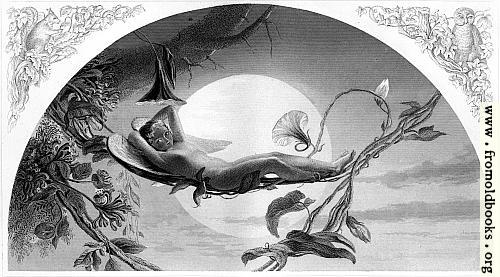To Samuel Gray Ward, S.S. EUROPA, July 22, 1848At sea Steamship Europa
22 July 1848.
The daily presence and cheerful smiles of your brother [probably Thomas Wren Ward, Jr.] make it almost imperative, if I had not besides a just debt, to write you a page, and it will be some sunshine in these head winds and long disgust of the sea, to remember all the gallery of agreeable images that are wont to appear with your name. What games we men so dumb and lunatic play with one another! What is it or can it be to you that through the long mottled trivial years a dreaming brother cherishes in a corner some picture of you as a type or nucleus of happier visions and a freer life. I am so safe in my iron limits from intrusion or extravagance, that I can well afford to indulge my humor with the figures that pass my dungeon window, without incurring any risk of a ridiculous shock from coming hand to hand with my Ariel and Gabriel. Besides, if you and other deceivers should really not have the attributes of which you hang out the sign, you were meant to have them, they are in the world, and it is with good reason that I rejoice in the tokens. Strange that what is most real and cordial in existence should lie under what is most fantastic and vanishing. I have long ago found that we belong to our life, not that it belongs to us, and that we must be content to play a sort of admiring and secondary part to our genius. But here, to relieve you of these fine cobwebs, comes an odd challenge from a fellow passenger to play chess with him; me too, who have not played chess, I suppose, for twenty years. 'T is of a piece with the oddity of my letter, and I shall accept that, as I write this. Shadows and shadows. Never say I did it. Your loving fellow film.
Sea Weeds. — Two very good men with whom I spent a Sunday in the country near Winchester lately [Arthur Helps and Thomas Carlyle on July 9], asked me if there were any Americans, if there were any who had an American idea? or what is it that thoughtful and superior men with us would have? Certainly I did not retort, after our country fashion, by defying them to show me one mortal Englishman who did not live from hand to mouth but who saw his way. No, I assured them there were such monsters hard by the setting sun, who believed in a future such as was never a past, but if I should show it to them, they would think French communism solid and practicable in the comparison. So I sketched the Boston fanaticism of right and might without bayonets or bishops, every man his own King, and all cooperation necessary and extemporaneous. Of course my men went wild at the denying to society the beautiful right to kill and imprison. But we stood fast for milk and acorns, told them that musket-worship was perfectly well known to us, [but] that it was an old bankrupt, but that we had never seen a man of sufficient valor and substance quite to carry out the other, which was nevertheless as sure as Copernican astronomy, and all heroism and invention must of course lie on this side. 'T is wonderful how odiously thin and pale this republic dances before blue bloodshot English eyes, but I had some anecdotes to bring some of its traits within their vision, and at last obtained a kind of allowance; but I doubt my tender converts are backsliding before this. — But their question which began the conversation was so dangerous that I thought of no escape but to this extreme and sacred asylum, and having got off for once through the precinct of the temple, I shall not venture into such company again, without consulting those same thoughtful Americans, whom their inquiry concerned. And you first, you who never wanted for a weapon of your faith, choose now your colors and styles, and draw in verse, or prose, or painted outline, the portrait of your American.
Forgive these ricketty faltering lines of mine; they do not come of infirm faith or love, but of the quivering ship. Ever your friend,R. W. E.



Some sources:
The Letters of Ralph Waldo Emerson, ed. by Ralph Leslie Rusk and Eleanor Marguerite Tilton (Columbia University Press, 1991)
Letters from Ralph Waldo Emerson to a friend, 1838-1853, ed. by Charles Eliot Norton (Houghton, Mifflin, 1899)




No comments:
Post a Comment